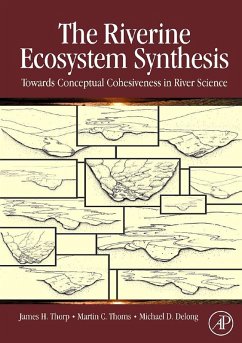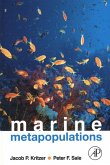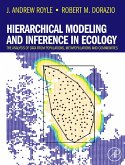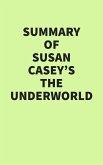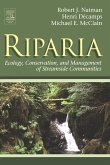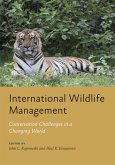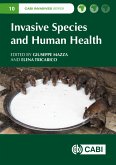This book presents the most comprehensive model yet for describing the structure and functioning of running freshwater ecosystems. Riverine Ecosystems Synthesis (RES) is a result of combining several theories published in recent decades, dealing with aquatic and terrestrial systems. New analyses are fused with a variety of new perspectives on how river network ecosystems are structured and function, and how they change along longitudinal, lateral, and temporal dimensions. Among these novel perspectives is a dramatically new view of the role of hydrogeomorphic forces in forming functional process zones from headwaters to the mouths of great rivers.
Designed as a useful tool for aquatic scientists worldwide whether they work on small streams or great rivers and in forested or semi-arid regions, this book will provide a means for scientists to understand the fundamental and applied aspects of rivers in general and includes a practical guide and protocols for analyzing individual rivers. Specific examples of rivers in at least four continents (Africa, Australia, Europe and North America) serve to illustrate the power and utility of the RES concept.
Designed as a useful tool for aquatic scientists worldwide whether they work on small streams or great rivers and in forested or semi-arid regions, this book will provide a means for scientists to understand the fundamental and applied aspects of rivers in general and includes a practical guide and protocols for analyzing individual rivers. Specific examples of rivers in at least four continents (Africa, Australia, Europe and North America) serve to illustrate the power and utility of the RES concept.
- Develops the classic, seminal article in River Research and Applications, "A Model of Biocomplexity in River Networks Across Space and Time" which introduced the RES concept for the first time
- A guide to the practical analysis of individual rivers, extending its use from pristine ecosystems to modern, human-modified rivers
- An essential aid both to the study fundamental and applied aspects of rivers, such as rehabilitation, management, monitoring, assessment, and flow manipulation of networks
Dieser Download kann aus rechtlichen Gründen nur mit Rechnungsadresse in A, B, BG, CY, CZ, D, DK, EW, E, FIN, F, GR, HR, H, IRL, I, LT, L, LR, M, NL, PL, P, R, S, SLO, SK ausgeliefert werden.
"The book provides a good overview for all those interested in the development of river science with critical reviews of current theories. It is more than simply an overview however, in that it presents a well- argued, detailed synthesis of these theories inviting comments and further developments from academics. A useful resource for any undergraduate or postgraduate student studying river systems, along with academic researchers and practitioners, the RES outlines the developments in river science that will no doubt shape future research for many years to come."--River Research and Applications
"The book provides a good overview for all those interested in the development of river science with critical reviews of current theories. It is more than simply an overview however, in that it presents a well- argued, detailed synthesis of these theories inviting comments and further developments from academics. A useful resource for any undergraduate or postgraduate student studying river systems, along with academic researchers and practitioners, the RES outlines the developments in river science that will no doubt shape future research for many years to come."--River Research and Applications

